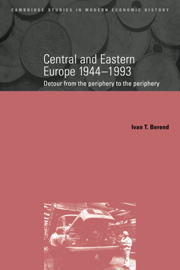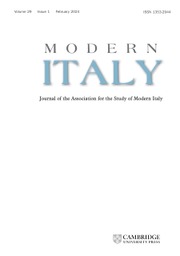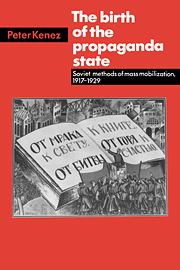Hungary from the Nazis to the Soviets
Hungary was the last ally of Nazi Germany, and as such suffered dreadful destruction in the course of the fighting during the last year of the war. Although the war discredited the political and social elite and gave opportunity for a new beginning. early optimism in democratic circles quickly dissipated. The communists, who had negligible indigenous support, with the help of the Soviet Army, in a short time managed to destroy any organized opposition to their taking power. Based on archival and other primary sources, this concise book describes the methods of communist conquest of power in one country in Eastern Europe to make the origin of the Cold War more understandable.
- Takes a look at Hungarian history, stressing cultural and social history
- Based on extensive research in Hungarian archives
- First book of its kind in a Western language
Reviews & endorsements
"The study under review here is a fine account of the struggle for Hungary's future after World War II, a transitional period when noncommunists believed they could overcome overwhelming odds and obtain a modicum of independence and political pluralism for their country. While more information might well surface one day from Soviet archives and modify what we now know, and other scholars might and indeed should scrutinize the motives and activities of the United States in greater detail, Hungary from the Nazis to the Soviets is going to the be the standard work on the subject for years to come." - Charles Gati, Nitze School of Advanced International Studies, Washington, D.C.
"Kenez deserves praise for judicious and clearly written account of Hungary's traumatic absorption into the Soviet-Communist sphere"
Bennet Kovrig, The International History Review
"Illuminating book....a valuable contribution to the ongoing debate."
-Mark Kramer, American Historical Review
"In this lucid, thorough text, Peter Kenez argues that Moscow, not Budapest, decided Hungary's postwar fate, but also that Soviet policy was improvisational rather than deterministic." -Andrea Orzoff, German Studies Review
Product details
February 2009Paperback
9780521747240
324 pages
229 × 152 × 18 mm
0.43kg
Available
Table of Contents
- 1. Introduction
- 2. The revolution, 1917–21
- 3. New economic policies, 1921–9
- 4. The first five-year plan
- 5. High Stalinism
- 6. A great and patriotic war
- 7. The Nadir:
- 1945–53
- 8. The age of Khrushchev
- 9. Real, existing socialism
- 10. Failed reforms
- 11. Leap into the unknown
- 12. Afterthoughts
- Chronology.








.jpg)
.jpg)




